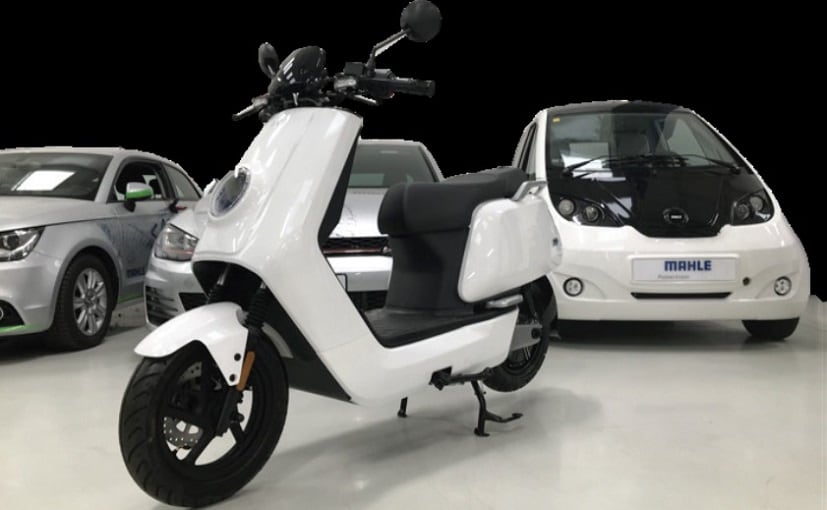
[ad_1]
By combining the benefits of super capacitors and traditional lithium-ion batteries, the new lithium-carbon technology enables a full charge to be delivered in a similar time to refuelling an internal combustion-powered vehicle.

A lithium-carbon pack could be recharged at 20 kW in just 90 seconds
MAHLE Powertrain and Allotrope Energy have unveiled a new battery technology which offers ultra-fast recharging coupled with good power density. By combining the benefits of super capacitors and traditional lithium-ion batteries, the new lithium-carbon technology enables a full charge to be delivered in a similar time to refuelling an internal combustion-powered vehicle. In addition, Li-C cells are free from rare-earth metals, are fully recyclable, and are not susceptible to the runaway events.
However, in a collaborative project with Allotrope Energy, MAHLE Powertrain has considered how an electric moped could be used as an urban delivery vehicle powered by an inexpensive small capacity lithium-carbon battery that could be recharged between stops in as little as 90 seconds.
Allotrope Energy’s lithium-carbon technology combines the benefits of super capacitors and traditional lithium-ion batteries to deliver a cell that can be recharged quickly and yet retains good energy density. The technology features a high-rate battery-type anode and a high-capacity electric double layer capacitor (EDLC)-style cathode, separated by an organic electrolyte.
Also Read: MAHLE Powertrain Breaks Ground On New EV And Hydrogen Focused Test Chamber

The lithium-carbon cells are free from rare-earth metals, are fully recyclable, and are not susceptible to runaway events.
The result is a battery cell with that suffers none of the thermal degradation effects experienced by traditional lithium-based batteries. Its stability, even at high temperatures, permits high current delivery and fast recharging, all without the need for complex external cooling or elaborate battery management systems.
Additionally, its capacitor-style cathode enables a lifetime of over 100,000 cycles, far greater than conventional batteries, while the elimination of rare-earth metals and the design’s complete recyclability make it better for the environment both during production and long after it.
As part of the project, MAHLE Powertrain investigated the scenario of a city-based e-moped fast-food delivery service with a 25 km target range. A 500 Wh conventional lithium-ion battery would require a recharge mid-shift that, even with a fast-charger, would take more than 30 minutes. In addition, regular fast charging reduces battery life to the point it would likely need replacement every year or two.
A lithium-carbon pack, however, could be recharged at 20 kW in just 90 seconds, meaning a full charge could be achieved in the time taken for the next delivery to be collected.
“With ultra-fast charging, the size of the battery can be optimised to suit the scenarios the vehicle will be used in, and that leads not only to weight savings but also cost reductions that further lower the barriers to decarbonisation,” Bassett pointed out.
Dr Mike Bassett, MAHLE Powertrain’s Head of Research said, “The real challenge came in designing the electrical architecture capable of absorbing such high rates of charge. Additionally, with no suitable charging systems on the market that can deliver these charge rates from a domestic supply, we created our own bespoke design.”
0 Comments
The solution Bassett’s team came up with uses its own built-in capacitor-based energy store to deliver ultra-fast charging up to 20 kW by augmenting the power from a typical 7 kW single phase connection, thereby reducing cost and complexity while eliminating the need for expensive power grid connection upgrades.
For the latest auto news and reviews, follow carandbike.com on Twitter, Facebook, and subscribe to our YouTube channel.
[ad_2]
Source link
